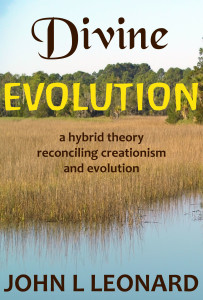I have a confession to make: I've enjoyed watching the movies of Harrison Ford as he pretended to be tough-as-nails archeologist Indiana Jones and rogue space smuggler Han Solo. He's a pretty good actor. Unfortunately, Mr. Ford has also been known to make headlines by saying words that were not scripted for him by a very talented writer. For example, he was recently quoted as saying the human race would soon become extinct unless some form of collective action wasn't immediately taken to "combat climate change." Please stick to your script in the future, Harrison. Now I am not the first writer that noticed a man who owns multiple airplanes -- a man who is completely unqualified to offer an informed opinion about the potential impact of "climate change" still felt free to lecture those of us who can't even afford to fly coach. This man is the same actor bragged to a magazine in 2010 that he would "often fly up the coast for a cheeseburger." Because he could. Apparently we should all pay higher taxes for energy and drive hybrid vehicles so Mr. Ford won't feel guilty about flying to Europe on his own private jet. But if we seriously believed his Chicken Little mentality, why shouldn't we force people like Mr. Ford to immediately give up their private jets in favor of (gasp) commercial air travel? This prima donna burns more gas on one flight to get a cheeseburger than I burn in my much more modest form of transportation over an entire year. Please get over yourself, Captain Solo. Sadly, Mr. Ford is hardly alone with his holier-than-thou attitude. The … [Read more...]
The end of a delusion
My career as a writer was inspired by the word delusion, more than any other word which can be found in the dictionary. Delusions are defined as "fixed false beliefs or opinions" that are resistant to reason even when confronted by actual facts. For this reason, the term is frequently used to describe symptoms of mental illness. The book The God Delusion by renowned atheist and biologist Richard Dawkins was the inspiration for my first published book, Divine Evolution, after I heard Dawkins say in an interview that cars, computers, and even his book were all intelligently designed, but human beings were not. I still haven't gotten over the absurdity of his comment -- I began learning about computers while matriculating as a student at UGA, which was followed a long career as a software developer before becoming a professional writer. So I am well aware that the capabilities of an "intelligent designed" computer actually pales in comparison to the human brain, that DNA is exponentially more complex than computer machine language, and that the "software" that operates the human body works independently of our conscious brain is infinitely more complex than the source code for Google's search engine. Richard Dawkins made it crystal clear in his book that he believes supernatural phenomena does not exist. According to him, only the "real" or material world exists -- no gods, devils, ghosts, angels, or demons. No miracles, no answered prayers. Of course, I couldn't write Divine Evolution until I'd done quite a bit of research into the science of evolution … [Read more...]
The Pearl: 30 March 2015
The only source of knowledge is experience. – Albert Einstein Albert Einstein was arguably one of the greatest scientists of the 20th century. This quote is particularly interesting because there are some renowned modern scientists who would try to convince you the opposite is true -- they actually claim that careful inference is superior to personal experience. However, seeing is indeed believing. In my book Divine Evolution, I wrote about my personal experiences -- yes, I do mean to imply there were multiple occurrences -- with ghosts. Many of these paranormal experiences were witnessed by other people. And in another chapter, I wrote about my personal encounter with the risen Christ on the night I connected the dots that linked Matthew 7:7 and Revelations 3:20. Then in my Counterargument for God, I sought to examine what I perceive to be a connection between the near death experience, or NDE, and ghosts, which of course could be called ADES, for after death experiences. My personal experiences were not hallucinations. They were nothing less than evidence that strongly indicates that the mind and brain are actually separable entities. There is scientific evidence to support my claims, known as corroborated veridical NDE events. These events involve a person who has a medical emergency of some nature that puts them temporarily in a state near death, and they claim to have out-of-body experiences. What makes these claims of particular interest are two facts: their medical condition can be verified, and these people make a specific claim of acquiring … [Read more...]


